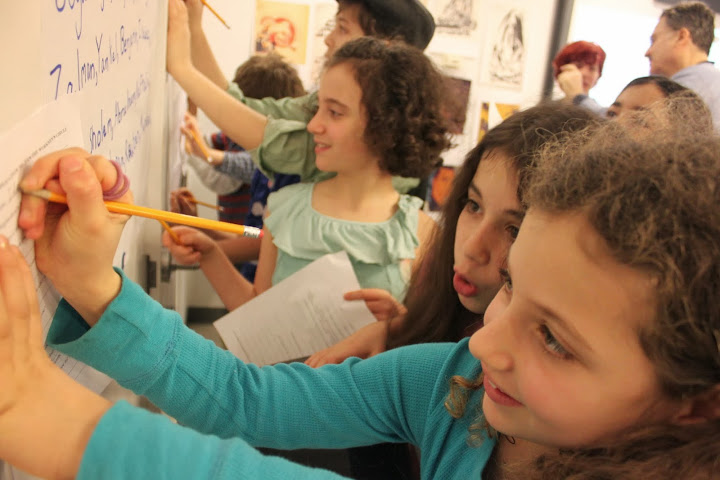
Anat Gerstein
New York, N.Y. – Families looking for a supplemental Jewish cultural education and social justice activism will have an exciting new opportunity this back-to-school season as Workmen’s Circle Schools across the country prepare to re-open their doors on Sunday, September 18.
Workmen’s Circle Schools draw families who are looking for an alternative to the traditional, synagogue-based experience. There are eight schools in the growing national network organized under the umbrella of the Workmen’s Circle, the 100+ year old non-profit headquartered in New York City. Serving more than 300 students, the Workmen’s Circle is carving out a niche in progressive Jewish education, taking a “Not Your Parents’ Hebrew School” approach.
Each of the Workmen’s Circle Schools is designed to meet the needs of local communities, while maintaining a larger focus on building cultural Jewish identities—which is what most Jewish Americans are seeking, according to the Pew Research Center.
The Center’s landmark 2013 study found that 60 percent of Jewish Americans believe that being Jewish is mainly a matter of culture or ancestry, underscoring the demand for the Workmen’s Circle model. “Many of our schools were founded by parents who wanted their children’s Jewish learning to be centered around our rich heritage of joyful celebrations alongside focused social and economic justice activism. They are looking for an authentic experience very different from their own Hebrew School memories.” Ann Toback, the Workmen’s Circle’s Executive Director, commented. “They want their children to see Judaism as relevant to their lives, to embrace it and implement its values—which is exactly what we’re doing at our schools.”
Those values include joyful holiday celebrations, yiddishkayt (which means “a Jewish way of life” in Yiddish), and social and economic justice drawing from the Workmen’s Circle’s historic roots in the labor movement. In a typical Workmen’s Circle School year, students are not only in the classroom, they are also on the streets protesting for a living wage, in art studios creating Purim costumes, and on stage playing klezmer music.
This blend of activities sparks the interest of the children and their families. “The Workmen’s Circle curriculum acts as a guide for each school and encourages students to be part of their education. Teachers take their students’ lead in determining which social justice issue they’ll respond to; families come together for holiday festivities organized by their children; and students explore their ancestry through long-term group projects,” said Kate O’Brien, the Workmen’s Circle Director of Education.
The Workmen’s Circle School network includes schools in Midtown Manhattan, Brooklyn, East Meadow (Long Island), Smithtown (Long Island), Central New Jersey, Boston, Chicago, and Westchester County (New York). The schools serve students in kindergarten through seventh grade, and graduation is marked by cultural b’nei mitsve celebrations.
About The Workmen’s Circle
At the Workmen’s Circle, Jewish identify is not defined by or confined by religious beliefs. For us, identity and belonging are found in our heritage, values, ideals, language, cultural traditions and celebrations. We have been cultivating a proudly progressive, diverse, and inclusive community rooted in Jewish culture and social action for more than a century.
Since our founding, the needs and priorities of our community have evolved and today’s Workmen’s Circle is responding in new and exciting ways. We seed and support vibrant Jewish learning communities, create opportunities to connect to Jewish culture, celebrate our rich heritage, and take action for social and economic justice. Together, as we always have, we are working to build a shenere un besere velt far ale – a better and more beautiful world for all.
Learn more at www.circle.org.







